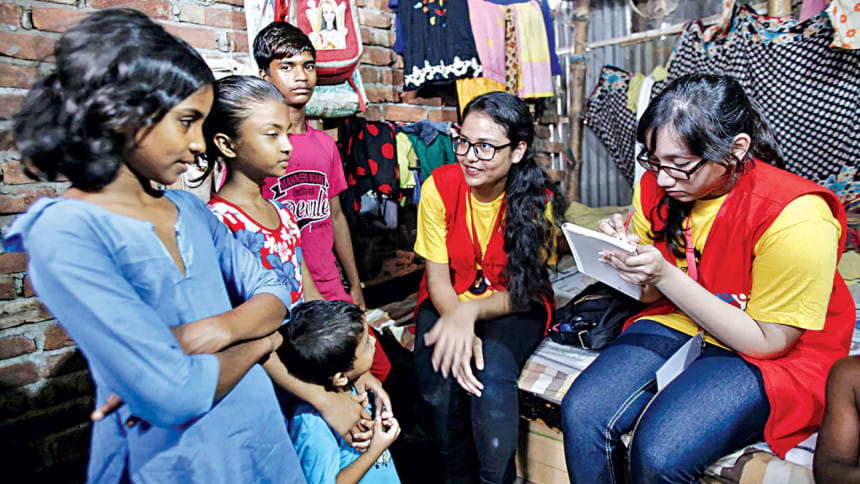Reconsidering How We See Voluntary Work

Voluntary work has always been a popular medium for the youth to engage with social issues and it's been particularly refreshing to witness youth-led organisations spearheading impactful projects.
As young people learn to recognise that exposure isn't a valid form of payment for unpaid internships, a similar line of thought comes to mind regarding voluntary work. Where do we draw the line between working out of one's passion and being exploited?
Exploitation looks like demanding long hours and maximum effort for a job that pays nothing, except for some level of social and self-fulfilment, by taking advantage of people's emotional involvement. It genuinely freaks me out when I see recruitment posts asking for graphic designers and writers who must be ready to give several hours of their day. And this recruitment is largely targeted towards middle and high schoolers who can have a difficult time setting boundaries when offering their skillset.
It's important not to undermine the work they've put in. A single Instagram infographic requires intensive research and stressful deadlines. Plus, it can be incredibly emotionally taxing and triggering to constantly be exposed to violence, abuse, and mental health -- issues which are often the subjects of work in volunteer organisations.
It's important we ask ourselves if the work we put in is meaningful or useful the way we consider it to be. While I've assumed that people volunteer because they feel strongly about a cause, many do it to enhance their résumé. We know this trope: doing the bare minimum for a day, disrupting communities instead of thinking about sustainable forms of development, and feeding into their own saviour complex.
Not only do the admissions officers see through it many times (in the context of using this volunteer work to boost applications when applying for university abroad), you might end up causing more harm than good. For example, feeding people living in poverty and taking 1,000 photographs of yourself doing so instead of contributing to mechanisms that teach them to stand on their own feet, promotes a saviourity complex. Even if there's some net benefit to providing them with food one day, you need to reconsider the framework of your organisation.
Having said all of that, this discussion does have several moral dilemmas. The fact that we're having this conversation screams privilege because we can decide to not partake in voluntary work, but the people we work for can't wake up one day and deny their reality. Many organisations may not have the funding to pay their workers, and that doesn't mean work can stop. But you must be mindful of how much you ask from volunteers, and look into foreign donors or fellowships for potential monetary support as well.
Social activism and justice must not be a choice as long as systemic inequality exists. There are ways alternative to volunteerism like donations, amplifying underrepresented voices, making existing resources accessible, and giving up space. For the youth age demographic, this time is for you to grow creatively. Find a balance so that the trade-off doesn't become your mental health. Perhaps working on your skills will lead to opportunities to help your communities better. If voluntary work is something you enjoy, then definitely stick with it, but know that everyone has a different way to contribute.
Aahir Mrittika likes to believe she's a Mohammadpur local, but she's actually a nerd. Catch her studying at [email protected]

 For all latest news, follow The Daily Star's Google News channel.
For all latest news, follow The Daily Star's Google News channel. 



Comments